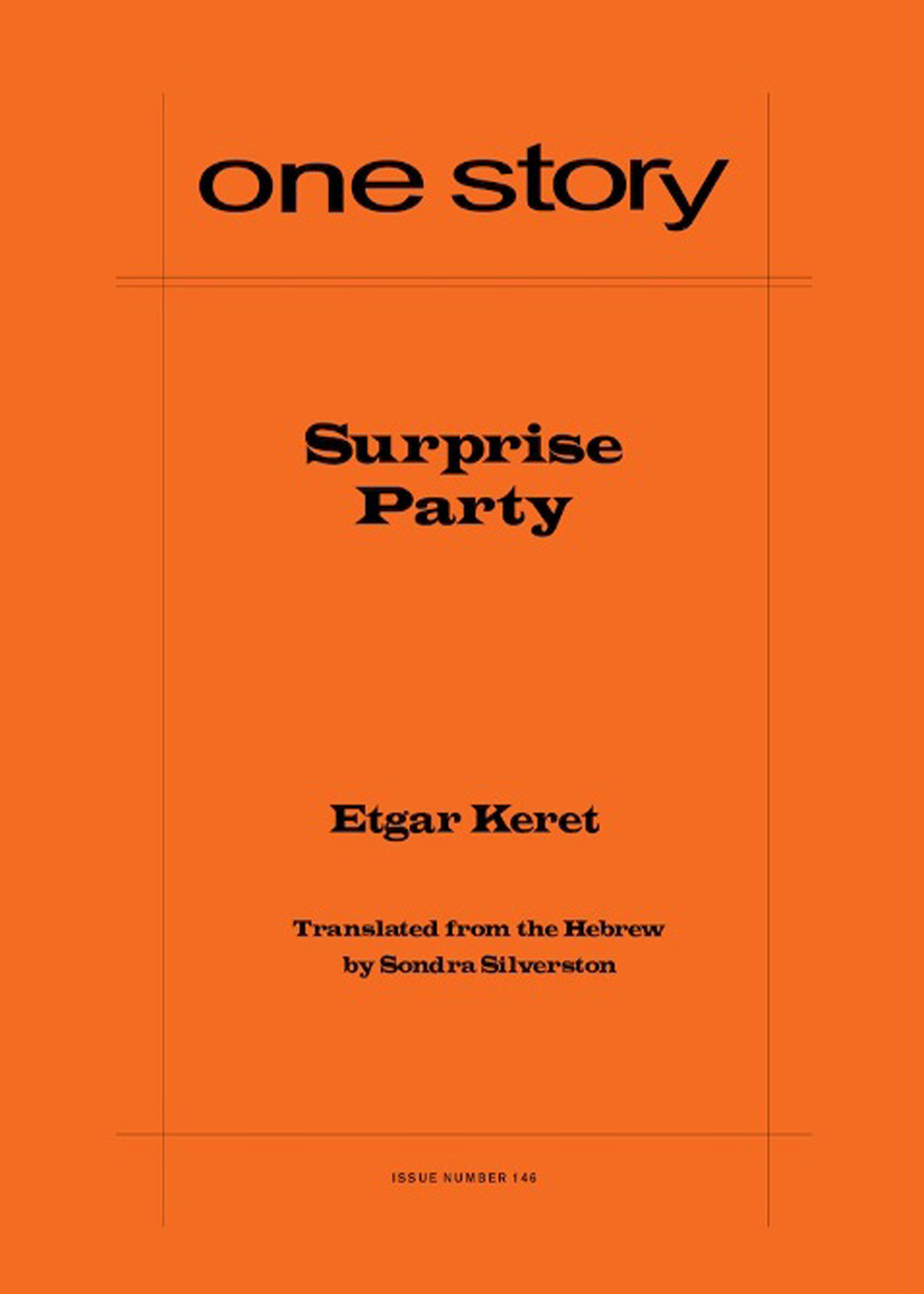
Surprise Party
$2.50
Sold out
Excerpt
Three people are waiting at an intercom. A weird moment. More precisely, an awkward moment, uncomfortable.
“You’re here for Avner’s birthday too?” one of them, a guy with a graying mustache, asks the guy who pressed the buzzer. The guy who pressed the buzzer nods. The third one, tall with a Band-Aid on his nose, nods too. “No kidding,” the mustache massages his neck nervously, “you’re friends of his?” They both nod. A female voice rings out from the intercom.
“Come on up, the twenty-first floor,” and then the buzz that opens the door. The elevator buttons only go up to 21; our Avner lives in the penthouse.
On the way up, the mustache confesses that he doesn’t really know Avner. The mustache is just the manager of the bank in Ramat Aviv where Avner and Pnina Katzman have an account. He has never met them, didn’t start at that branch till two months ago. Before that he managed a smaller branch in Ra’anana. That’s why he was surprised when Pnina called to invite him to this party, but she insisted, said that Avner would be so happy.
Etgar Keret
Born in Tel Aviv in 1967, Etgar Keret is one of Israel’s bestselling authors. His books are published in 29 languages and have won international acclaim. His stories have appeared in McSweeney’s, The Paris Review, Zoetrope and read on NPR’s This American Life.
In 2007 Keret co-directed his first feature film, Jellyfish (“Meduzot”), which won three prizes in the Cannes film festival, including the prestigious Camera d’Or. In that same year, Wristcutters: A Love Story, an American feature film based on a novella written by Keret, was nominated by the Independent Spirit Award for Best First Feature and Best First Screenplay.
In 2010, Keret was honored in France with the decoration of Chevalier de l’Ordre des Arts et des Lettres. Keret has received the Israeli Book Publishers’ Association’s Platinum Prize several times. He has also been awarded the Prime Minister’s Prize for literature, and the Ministry of Culture’s Cinema Prize. Since 1998, Keret’s stories are part of the Israeli high school literature curriculum.
Q&A by Pei-Ling Lue
- PL: Where did the idea for this story come from?
- EK: “Show up everyday. You don’t have to solve everything in a day, but you have to show up and say, ‘I am here’ and do your work. Your work is only as strong as your will to be present.” A French prostitute told me this on my seventeenth birthday and I believe she was mostly right. Writing fiction is such a bizarre life pursuit you have to come up with strange excuses to devote your life to it, as opposed to actually doing something useful, like developing the cure to river blindness. But on the days when I am not in my office, when I am not engaged in that delicious struggle of working things out on the page, I inevitably feel lost. I think writers should always hunger for that struggle, you should want to be working out the furious kinks of your narrative, even if it is driving you fucking insane. Everything else is just the spaces in between the words.
- PL: What was the most challenging aspect of writing this story?
- EK:
- PL: This story starts out in the points of view of Mustache, Band-Aid, and Eyebrows, and then there’s a shift into Pnina’s voice toward the end. Did you know from the start that this story would make this shift and can you tell us a little bit on how you decided on this structure?
- EK:
- PL: “Surprise Party” is translated from Hebrew. Do you feel that your stories gain or lose anything in translation? What has been your experience of the translation process?
- EK:
- PL: I’ve read two of your short story collections and most of your stories are very short. Those short shorts have a very different energy, like small explosions. This story had more of a slow burn quality, if that makes any sense. Is your writing method different when you work on a short short as opposed to a longer story?
- EK:
- PL: How long did it take you to complete this story?
- EK:
- PL: What are you working on now?
- EK:
- PL: What is the best bit of advice about writing you have ever received?
- EK:
- PL: Will you ever tell me the secret behind what happened to Band-Aid’s nose?
- EK: